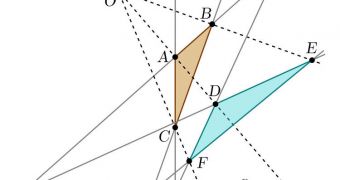A group of French scientists from the Université Paris Descartes, led by expert psychologist Véronique Izard, says that a recent study managed to determine an interesting fact about the human mind, and namely that it's able to grasp abstract geometric shapes innately.
Seeing how education in mathematics begins at a very early age in the civilized world, the research team had no choice but to travel to less civilized parts of the world to look for minds that had not yet been altered by formal math education.
They came all the way to the South American jungle, where they conducted their study on a group of Amazonian people called the Mundurucú. Though they were never exposed to even the most basic geometric concepts, these individuals can intuitively grasp abstract geometric principles.
According to the research team, the properties of points, lines and surfaces are just as easily grasped by Mundurucú children (7 to 13 years old) and adults as they are by similar age groups in France and the United States, Wired reports.
Details of the investigation were published in the May 23 online issue of the esteemed journal Proceedings of the National Academy of Sciences (PNAS). The work has some interesting conclusions.
“Either geometry is innate but doesn’t emerge until around age 7 or geometry is learned but must be acquired on the basis of general experiences with space, such as the ways our bodies move,” Izard says.
Interestingly, the team determined that – regardless of location – children below the age of 7 had a more difficult time grasping concepts of geometry such as infinite surfaces. Researchers are now wondering why is it that the brain only becomes capable of understanding this later on.
If a neural system is indeed responsible for underlying our ability to grasp advanced, abstract concepts, then what is the mechanism that puts it into action at age 7? The correlation with spatial learning is not necessarily meaningful, the team says.
For example, a forest dweller will never see a perfect line extending forever, or a perfect, 90-degree angle. Yet, after the age of 7, these concepts can be understood with tremendous ease even by people as the Mundurucú.

 14 DAY TRIAL //
14 DAY TRIAL //